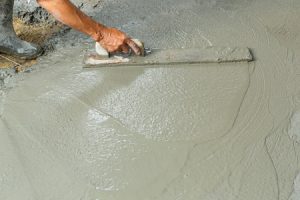 Although cold temperatures are typically a greater obstacle when working with concrete, hot summer days can present some unique challenges as well. To understand how extreme heat affects freshly-poured concrete, it’s important to first have a clear understanding of how the concrete-setting process works.
Although cold temperatures are typically a greater obstacle when working with concrete, hot summer days can present some unique challenges as well. To understand how extreme heat affects freshly-poured concrete, it’s important to first have a clear understanding of how the concrete-setting process works.
Concrete sets via an exothermic reaction called hydration.
When concrete hydrates, it absorbs moisture and forms solid crystals around the aggregate particles in the mix. The process of hydration is slowed by cold temperatures and accelerated by heat. On especially hot days when crystallization happens more quickly, the crystals have less time to strengthen before the hydration process is complete. Evaporation can also compromise the strength of the concrete’s surface layer. This, in turn, can make the concrete more susceptible to cracking.
The good news is, there are a few strategies you can employ to help concrete retain moisture on hot days and ensure that the finished product is as strong as possible.
- When pouring concrete in temperatures above 85°F, it’s a good idea to use a concrete mix with a higher volume of coarse aggregate particles. This can prevent the concrete from shrinking as it hydrates.
- If possible, pour concrete early in the morning before the temperature peaks.
- Spray cool water on the side forms and subgrade prior to pouring concrete slabs.
- Use tarps or other sunshades to keep paved surfaces cool and prevent evaporation while the concrete sets.
- Make sure you have enough help to mix, pour and finish the concrete without interruptions in between each step.
At Bergen Mobile Concrete, our metered mobile mixers are designed to provide a consistent, quality product that can be mixed to your exact specifications. Best of all, you’ll never have to pay for more than what you use! Just give us a call to schedule your concrete delivery today.
